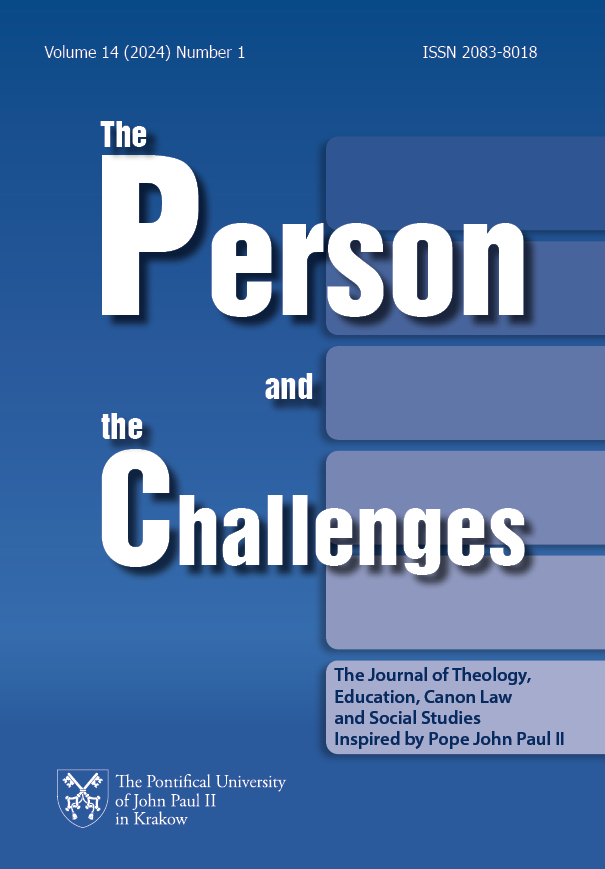Application of Catholic Social Teaching in Finance and Management
DOI:
https://doi.org/10.15633/pch.14118Keywords:
Catholic Social Teaching, religion, ethical investing, management, leadership, parablesAbstract
In dominating narratives, economics has been portrayed as hard science, based on complex mathematical equations and rigid statistical models. It seems to be overlooked that it belongs to the domain of social sciences and that its roots stem from philosophy and ethics. After all, many classical economists were either ethicists (A. Smith) or clergymen (T. Bayes). Today’s managers also seem to be motivated mainly by the desire to increase their company’s profits. However, if managers wish to become both effective and respected leaders for their teams, they should build their power on ethical principles deeply rooted in Catholic Social Teaching. The purpose of the present paper is to attract attention to the relation of economics, management and religion. Behavioral economics and management come to our aid here by emphasizing that, when making decisions related not only to financial markets but also to managerial tasks, what matters is not only factors that are strictly financial, but also those are related to psychology or ethics. Using the example of ethical investing and faith-based funds or stock indexes the Authors show that Christian values and the social teaching of the Catholic Church are still important to some participants in the financial markets.
References
Agosto E., Servant Leadership: Jesus and Paul, Chalice Press 2012.
Arli D.I., Tjiptono F., Consumer Ethics, Religiosity, and Consumer Social Responsibility: are They Related?, “Social Responsibility Journal” (2018) Vol. 14 No. 2,
pp. 302–320.
Ave Maria Mutual Funds (avemariafunds.com), (29.01.2024).
Benedict XVI, Caritas in veritate, (2009), http://www.vatican.va/content/benedict-xvi/en/encyclicals/documents/hf_ben-xvi_enc_20090629_caritas-in-veritate.html, (10.07.2021).
Budayová Z. (eds), The Impact of Modern Technologies on Life in a Pandemic Situation, “Journal of Education Culture and Society” 13 Nr 1, (2022), pp. 213–224.
Christensen C. M., How Will You Measure Your Life? (Harvard Business Review Classics). Harvard Business Review Press, 2017, https://hbr.org/2010/07/how-will-you-measure-your-life (21.10.2021).
Covey S. R., The 8th habit: From effectiveness to greatness, Simon and Schuster 2013.
Curran C.E., Catholic social teaching, 1891–present: A historical, theological, and ethical analysis, Georgetown University Press 2002.
Czerwonka M., Cultural, cognitive and personality traits in risk-taking behaviour: Evidence from Poland and the United States of America, “Economic research-Ekonomska istraživanja” 32 (1), (2019), pp. 894–908.
Czerwonka M., The influence of Religion on socially responsible investing, “Journal of Religion and Business Ethics” (2014), 3 (1).
Drucker P. F., The Essential Drucker, New York 2005.
Ferruz L., Munoz F., Vargas M., Managerial abilities: Evidence from Religious Mutual Fund Managers, “Journal of Business Ethics” (2012), 105 (4), pp. 503–517.
Francis Pope, Evangelii Gaudium, United States Conference of Bishops, 2013. http://www.vatican.va/content/francesco/en/apost_exhortations/documents/papa-francesco_esortazione-ap_20131124_evangelii-gaudium.html, (10.07.2021).
Francis Pope, Fratelli Tutti, Vatican City 2020, https://www.vatican.va/content/francesco/en/encyclicals/documents/papa-francesco_20201003_enciclica-fratelli-tutti.html (10.07.2021).
Francis, Pope, Laudato si, Vatican City 2015, http://w2.vatican.va/content/francesco/en/encyclicals/documents/papa-francesco_20150524_enciclica-laudato-si.html, (10.07.2021).
Gómez-Bezares A.M., Gómez-Bezares F., Catholic Social Thought and Sustainability. Ethical and Economic Alignment, “Journal of Risk and Financial Management” (2021) 14 (1) 11, pp. 1–22.
Hindle T., Guide to Management Ideas and Gurus, Vol. 42, John Wiley & Sons, (2008).
John Paul II, Laborem Exercens, Vatican City 1981, https://www.vatican.va/content/john-paul-ii/en/encyclicals/documents/hf_jp-ii_enc_14091981_laborem-exercens.html, (21.10.2021).
John Paul II, Veritatis Splendor, The Vatican City, https://www.vatican.va/content/john-paul-ii/en/encyclicals/documents/hf_jp-ii_enc_06081993_veritatis-splendor.html, (21.10.2021).
New American Bible, https://www.vatican.va/archive/ENG0839/_INDEX.HTM, (21.10.2021).
Judák V. (eds), The importance of social and spiritual bridging in relation to post-covid society polarization in Slovakia, “Acta Missiologica“ (2022) 16 nr. 1, pp. 126–137.
Králik R. (eds), Compassion and Solidarity with the poor in Tahakh and Rabbinic Judaism, “Acta Missiologica” (2022) 16 nr. 1, pp. 154–168.
Lichner M. (eds), Pope Francis and jews. The proposed possibilities of Jewish-Christian dialogue, “Acta Missiologica“ (2021) 15 nr. 2, pp. 301–310.
Lichner M. (eds), Various aspects of understanding almsgiving in the context of solution of poverty in Aurelius Augustinus, Acta Missiologica (2023) 17 no. 1, pp. 85–96.
Ludvigh Cintulová L., Radková L., Budayová Z., Mental health of Roma women in post-covid era, “Acta Missiologica” (2022) 16 nr. 2, pp. 116–129.
Ludvigh Cintulová L., Budayová Z., Juhásová I., Health of Roma People living in marginalized Communities in Slovakia, “Clinical Social Work and Health Intervention” (2023) 14 nr. 1, pp. 7–15.
Ludvigh Cintulová L., Beňo P., Pavlovičová T., Aspects of social services and wellbeing in postcovid era, “Int J Health New Tech Soc Work“ (2023) 18 nr. 3, pp. 106–114.
Mátejová A., Tománek P., Family and Current Socialegal Measures for its Members in the Slovak Republic, in: Strong Families – Strong Societies, ed. E. Osewska, Krakow 2019: Uniwersytet Papieski Jana Pawła II, pp. 69–89.
Maturkanic P., Judak V. (eds), Catholic spirituality of north bohemia mission area and its future direction, “Acta Missiologica” (2023) 17 nr. 2, pp. 20–23.
MSCI USA Catholic Values Index Methodology, (29.01.2024).
Northouse P.G., Leadership: Theory and practice, Sage publications 2021.
Gaudium et Spes, Second Vatican Ecumenical Council, Pastoral Constitution on the Church in the Modern World, 1966.
Thaler R.H., Behavioral Economics: Past, present, and future, “American Economic Review” (2016) 106 (7), pp. 1577–1600.
Downloads
Published
Issue
Section
License

This work is licensed under a Creative Commons Attribution 4.0 International License.
Authors who publish with this journal agree to the following terms:
- Authors retain the copyright and full publishing rights without restrictions, and grant the journal right of first publication with the work simultaneously licensed under a Creative Commons Attribution 4.0 International License that allows others to share the work with an acknowledgement of the work's authorship and initial publication in this journal.
- Authors are able to enter into separate, additional contractual arrangements for the non-exclusive distribution of the journal's published version of the work (e.g., post it to an institutional repository or publish it in a book), with an acknowledgement of its initial publication in this journal.
- Authors are permitted and encouraged to post their work online (e.g., in institutional repositories or on their website) prior to and during the submission process, as it can lead to productive exchanges, as well as earlier and greater citation of published work (See The Effect of Open Access).

